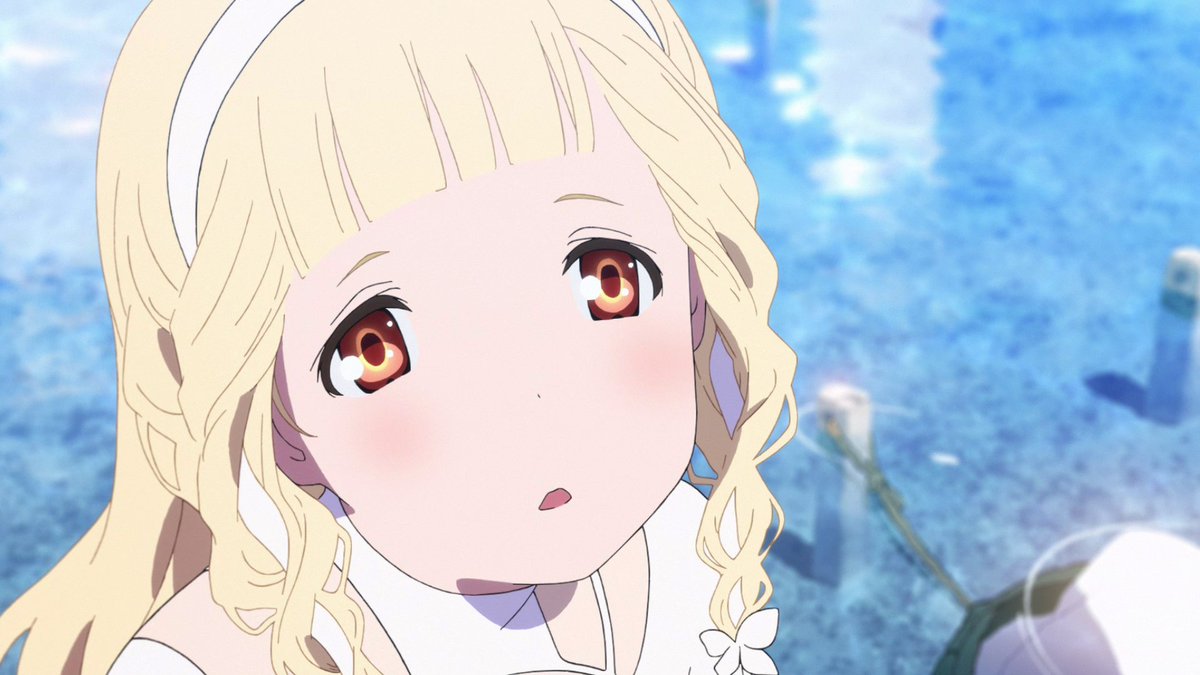12.10
(this article has spoilers)
When I found out Mari Okada was going to not only write a movie but direct it, despite having no prior experience animating, I was interested by that on novelty alone. The writer who has almost defined melodrama in this decade of anime sculpting a story from a whole other angle. Even if I’ve found little genuine enjoyment in most of her work, there’s still something worth taking notes on a writer whose developed an obvious style through all of her works. Compared to other writers whose signatures are so underdeveloped that even when they’re making shows without relying on source material there’s little identity to them, almost every Okada show has a moment you notice where even in the first episode they’re undeniably covered in her fingerprints. Like dysfunctional and often complicated relationships between a mother and her child, over the top childhood trauma, love triangles that explode in everyone’s faces, bizarrely singled-minded individuals whose actions and desires are completely alien to everyone else in the story, and crying. Lots of crying. Not since Jun Maeda has someone shaped the romance/drama genre in anime like she has.
And like Jun Maeda, Okada’s typical storytelling techniques can become hindrances as they repeat so much in her work that Maquia had little new to say. At first I thought the script was meant to be another one of her twelve episode animes but truncated into movie form, but looking at it closely, the primary story didn’t warrant a whole movie. First off, let’s stroll through another familiar Okada trope: The struggles of motherhood. Troubled relationships with mothers have been such a tried and tested Okada cliché that I wasn’t surprised when she revealed in her autobiography that she too had a rough time growing up with her mom. I guess what’s surprising in this film is that the mother is the main character this time. The character who starts off as a runt, comes of age and become a soldier, then grows old and dies? We look at his story through Maquia’s unaging eyes. From her perspective, years and decades become like seconds as her adoptive son grows old enough to be seen as her sibling, then ultimately so old that they look like granddaughter and grandfather. Reminds me a little of Yvaine’s situation in Neil Gaiman’s novel Stardust, except that book had more jokes.
Not to say this movie would have been better if it had more humor, but I found myself annoyed at how straightforward this film was. Because once you strip away the terminology like “Iorph” or “Renato”, the film does little with its fantasy setting. The Iorph are just elves. Blond-haired, meek humanoids who live for hundreds of years but hide in tiny villages while humans rule over most of the known world? They’re elves. Elves who weave for most of their lives, and without the pointy ears, but elves nonetheless. And the only difference between the Renato and regular dragons are that the former succumb to Mad Cow disease. You could say the fantasy elements are underdeveloped because they take a backseat to the humanity of the movie, but it doesn’t strike there. If I wanted a movie about the struggles of a young mother, I’d just watch Wolf Children. This film doesn’t know which side to lean into. But maybe it’s intentional. The movie’s themes prove to be a series of contrasts. By the end, the corrupt empire that slaughtered and kidnapped Iorph women loses its hold and gets attacked by other nations, while the Iorph village eventually recovered and it turns out the species isn’t on its last legs like the majority of the movie suggested. The supporting character Leilia struggles to at last meet her birth daughter to mirror Maquia’s combination of love and alienation towards her adoptive son, but then that subplot wavers off by the climax without any satisfying conclusion. And I guess that’s what Maquia was, a thousand punches but no finishing blow.
